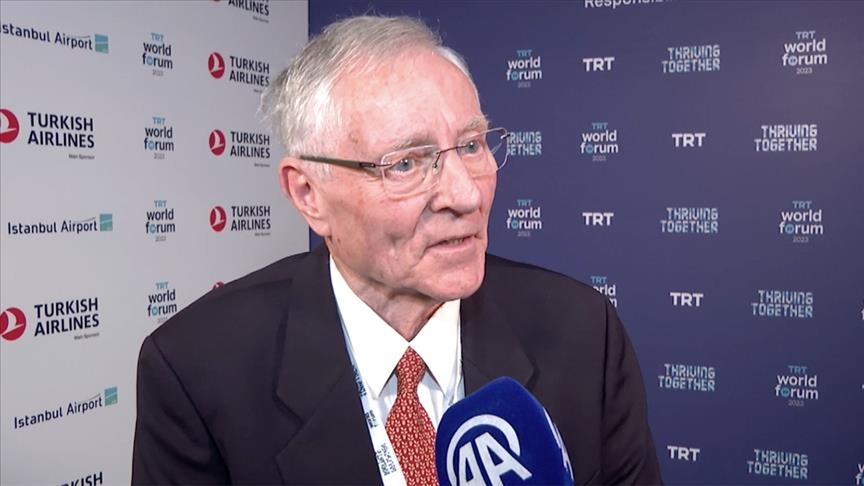Gaza genocide highlights need for UN reform: Former official
Cooperation between permanent members of Security Council could have averted global crises, says Hans von Sponeck

AMSTERDAM
Israel's genocide in Gaza, now in its second year, coupled with the United Nations' failure to take decisive action or implement effective measures has underscored once again the urgent need for comprehensive reform within the global body, according to a former UN official.
Speaking to Anadolu, Hans von Sponeck, a former UN assistant secretary-general and UN humanitarian coordinator for Iraq, highlighted the need to revise the veto system in the UN Security Council and to expand global representation.
“Afghanistan, Syria, Iraq and the brutal above-evil situation that has evolved in Palestine could have been avoided if the permanent members had pulled at the same end of the rope,” Sponeck said.
“That hasn't happened. Unilateral approaches didn't work,” he added.
Sponeck condemned the ongoing atrocities in Gaza, saying: “Every day, every evening, when we see the screens, we see not only killing and death in Palestine, we see a blatant ignoring of international law. The UN plays no role there.”
He also emphasized the imbalance in representation within the Security Council’s permanent membership.
“We have three Western nations that are permanent members -- the UK, the US and France. We have Russia as representing Eastern Europe, and we have Asia represented,” said Sponeck.
“Africa, with 54 countries, is not represented at all in the P5 group,” he said, stressing that the region must have a permanent seat.
“Latin America, likewise, is not represented, and Asia is totally underrepresented,” he pointed out.
Sponeck also underlined the need to reform the relationship between the Security Council and the UN General Assembly.
“You have, year after year, a General Assembly that passes resolutions; a majority votes for decolonization, votes for disarmament, votes for a new economic order, votes for more human rights. And then a minority does what they want,” he said.
Israel has launched a genocidal war on the Gaza Strip following a cross-border attack by the Palestinian group Hamas in October last year, killing nearly 44,000 people, most of them women and children, and injuring over 104,000.
The second year of genocide in Gaza has drawn increasing international recognition, with figures and institutions labeling the events as a deliberate attempt to destroy a population.
The conflict has also spread to Lebanon, with Israel launching deadly strikes across the country, killing nearly 3,500 people and injuring over 14,000 since October last year.
Israel expanded the conflict by launching a ground assault into southern Lebanon on Oct. 1 this year.
*Writing by Zehra Nur Celik








